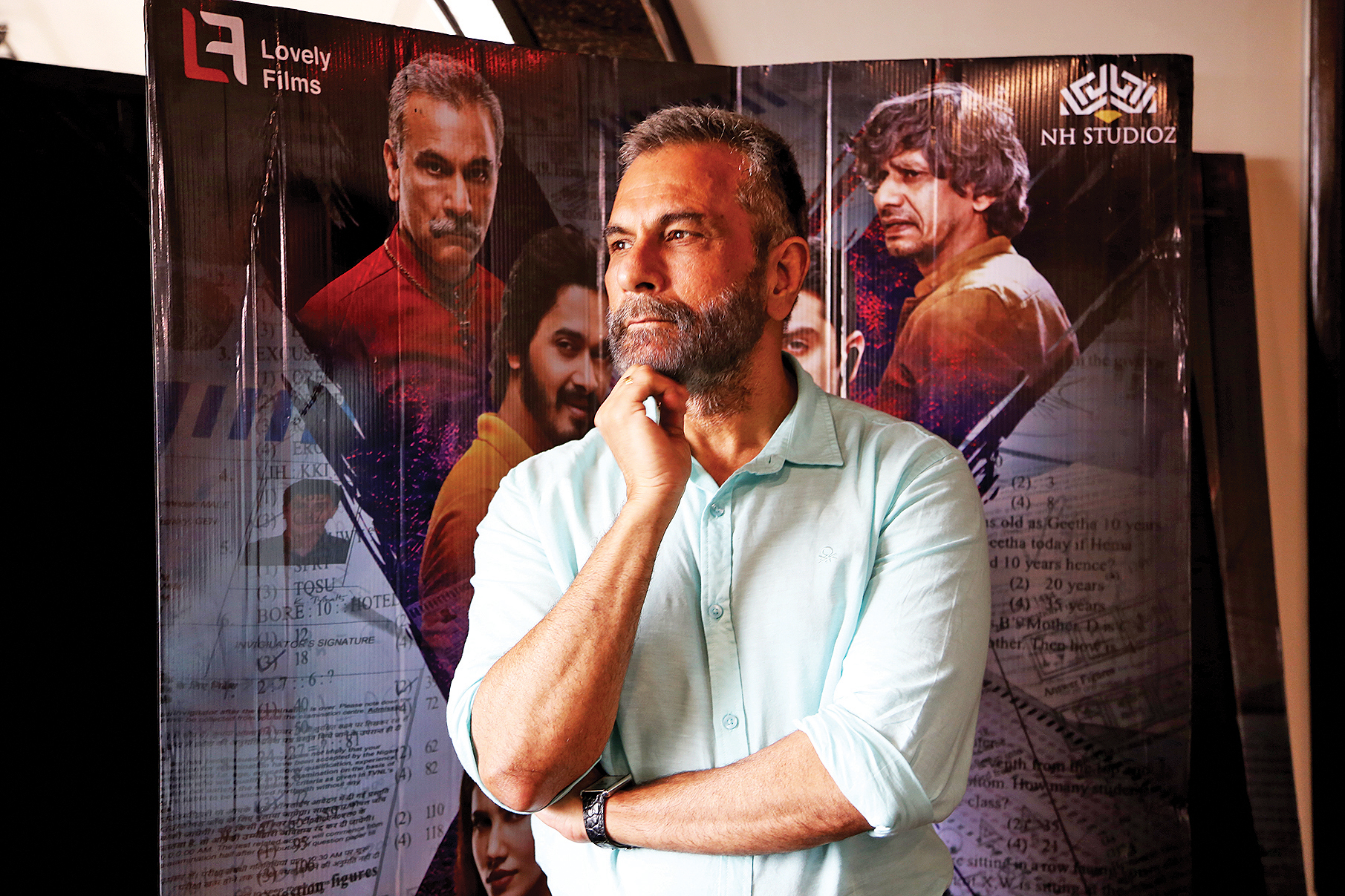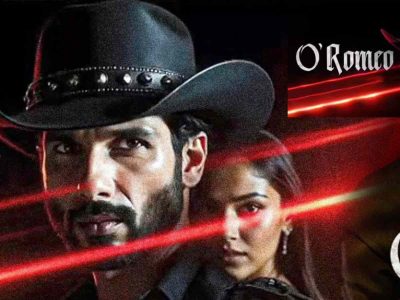With his latest film Setters about to be released, Pavan Malhotra bares his heart about his acting journey
Veteran actor Pavan Malhotra has spent the last three decades essaying diverse andcharacter-driven roles in films like Salim Langde Pe Mat Ro, Bagh Bahadur, Brothers in Trouble, Aithe, Black Friday, Jab We Met, Delhi-6, Road to Sangam, Bhindi Baazaar, Bhaag Milkha Bhaag, Children of War, Punjab 1984 and Mubarakan, among many others.
Starting out as the humble and hardworking Hari in the ‘80s television series Nukkad, Malhotra, who grew up in Delhi’s New Rajendra Nagar, started his film career with Richard Attenborough’s 1982 film, Gandhi wherein he served as a wardrobe assistant.
He subsequently served as a production assistant for Kundan Shah’s Jaane Bhi Do Yaaro and production manager for Saeed Akhtar Mirza’s Mohan Joshi Hazir Ho! After the actor who was originally approached to play the role of Hari in Nukkad backed out, Mirza offered the role to Malhotra and the rest is history.
In this interview with Patriot, Pavan Malhotra talks about Ashwini Chaudhary’s latest film Setters — where he plays the primary antagonist — his acting journey that started in Delhi by doing theatre with Feisal Alkazi and the importance of observation.
Tell us about Setters. How did you get associated with the film?
The film tells that story of a cheating racket that profits by helping weak students to pass exams. Setters is inspired by true events and also stars Shreyas Talpade, Aftab Shivdasani, Sonnalli Seygall, and Vijay Raaz. I play a ruthless don called Bhaiya Ji, who is the kingpin of the cheating racket. Ever since I watched Ashwini Chaudhary’s Dhoop, I had a desire to work with him. A few years ago, he invited me for a project which unfortunately didn’t materialize.
At first when he narrated the story of Setters, it was a bit difficult to digest that cheating at such a large scale actually takes place. And that there is a mafia out there who facilitates this in a very organised way. It’s actually a very scary thought.
How do you react to the comparisons that are being drawn between Setters and Why Cheat India, which released only a few months back?
I haven’t watched Why Cheat India, but our team has seen it. From what I have learnt, the focus of that film was entirely on one person running the show. But a cheating racket of this scale cannot be operated by a single person. It’s actually teamwork and that’s what we have tried to focus on. Something of such magnitude can only be carried out through an entire network of individuals, who are trained to pull it off on a regular basis. Everyone has a specific job assigned to him/her — ranging from approaching the prospects to forging the thumb impressions. This is why there are some 20 people in our cast. All I can tell you is that we have tried to keep it as realistic as possible and that’s probably what makes Setters unique.
Over the last three decades or so you have played an entire gamut of memorable characters without ever getting typecast. What do you attribute this consistency to?
As far as I am concerned the script is the single most important thing. Once the bound script is in place it makes the job of everyone very simple. As an actor you have to be true to the character, the way it is written in the script, unless you are a stylized star and people love your mannerisms. Of course, you will have your own interpretation of the character. I have played a Sikh many a times such as in Bhaag Milkha Bhaag, Jab We Met, and Mubarakan but the characters are all different. The same is true for the gangster characters that I have played over the years. But, Salim in Salim Langde Pe Mat Ro is very different from Tiger Memon in Black Friday.
You see, Salim is a small timer but Tiger is entirely different — he won’t easily scare and so you won’t see him yelling or losing his cool like Salim. Again, I am playing a don in Setters but the character background and motivations are very different. As an actor, you need to understand that no two characters are ever the same. It is up to your craft to bring that uniqueness out each time around. I like to observe people around me. Being an actor, you must always keep your eyes and ears open.
You started your career with television and then you shifted to cinema and in between you again did some more television. How do you see the two mediums?
Typically, in television you have to work with much smaller budgets and have to finish a larger number of scenes within a day. For me it’s the content that’s the most important because at the end of the day I am performing for the camera, whether it’s television or cinema. When television stopped offering the kind of work that I wanted to do, I gradually moved out. However, I did go back a few times when I got to work on some interesting subjects. But those were short stints.
How challenging was it to establish yourself in the film industry as a serious actor during your early years?
During my early years in Mumbai I failed to get any acting opportunity, despite having done theatre in Delhi with Feisal Alkazi. So, I had to settle for those jobs that were easily available, such as that of a production assistant. Every single job till date has come into my lap and I am thankful to god for that. The good thing is that my work has got me work. I wasn’t Saeed Sahab’s first choice both for Nukkad and Salim Lande Pe Mat Ro. But the latter got me the lead role in Buddhadeb Dasgupta’s Bag Bahadur. I got Brothers in Trouble because of Salim Langde and Bag Bahadur. Again, Anurag Kashyap didn’t know me and only offered me the role of Tiger Memon in Black Friday because of what he saw in my earlier performances. And in turn, Black Friday got me more work and so on. But to tell you the truth, all those years I was never flooded with work and there were months when I had no work and then suddenly a bunch of offers would come my way. Somewhere I believe in destiny and so whatever was meant to come to me has probably come my way.
What are your thoughts on the changing trends in the Indian entertainment industry?
While content has always been important, it has become more important than ever in the present times thanks to the digital revolution that we are witnessing. I have always believed that we require a certain level of maturity to truly appreciate the taste of bitter gourd. Similarly, in case of cinema, we can only develop this maturity if we are regularly exposed to different kinds of cinema. Once the audiences become more demanding and actually starts supporting good cinema, the filmmakers also are made to think beyond formulae and clichés.
In the recent years the success of films like Bareilly Ki Barfi and Badhaai Ho has taught us the importance of good content. You don’t need a festive season to make a good film work. Many big budget films have failed, despite getting released during the holidays. Hrishikesh Mukherjee once told me, “Son, my cinema belongs to the middle of the road.” Filmmakers like him never go out of fashion. In fact, it is a similar brand of middle cinema that’s producing the best results today.
What are your upcoming projects?
There is a film Flight, whose shooting is already complete but the VFX work is still pending. Also, there is a film called Family of Thakurganj. Then there is Anubhav Sinha’s Abhi Toh Party Shuru Hui Hai. n




